Why Beet and Cranberry Kombucha with Ginger is So Good For You
Like all kombucha, this beet and cranberry flavor is naturally fermented and supports gut health, digestion, and immune function. The earthy sweetness of the beet juice combined with the tart cranberry juice is a super satisfying flavor. The fermentation process deepens the flavors, infusing the kombucha with the essence of these vibrant ingredients while adding that fizzy sparkle we all love.
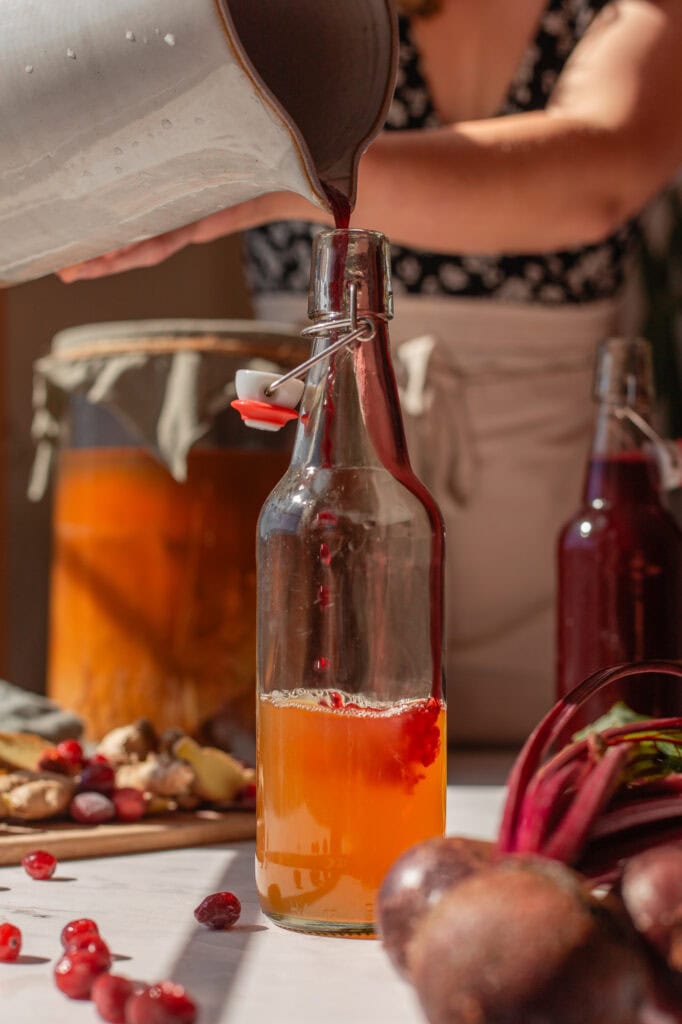
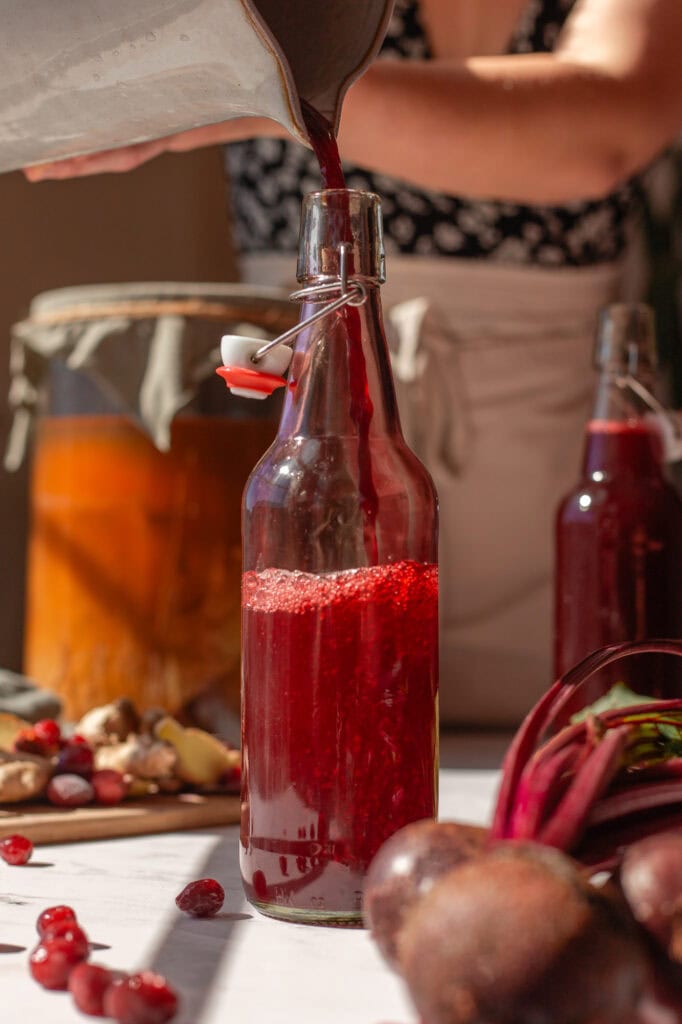
Beet and Cranberry Kombucha Benefits
This beet and cranberry kombucha is brimming with health benefits. Infused with the powerful antioxidants from beets and cranberries, along with the digestive benefits of ginger, it supports your body in ways that go beyond hydration:
- Gut Health & Digestion: Kombucha’s probiotics help balance your gut microbiome, promoting better digestion, boosting nutrient absorption, and improving overall digestive health.
- Detoxification & Circulation: Beets are known for their detoxifying properties, supporting liver health and enhancing blood flow, helping your body naturally cleanse.
- Antioxidant Protection: Cranberries provide a rich source of antioxidants, particularly vitamin C and flavonoids, which help fight oxidative stress and reduce the damage caused by free radicals.
- Digestive Support: Ginger is a well-known digestive aid that soothes the stomach and stimulates digestion, making this kombucha a perfect choice for improving overall digestion.
- Anti-Inflammatory Properties: Both ginger and kombucha contain compounds that help reduce inflammation, supporting your joints, muscles, and fascia.
- Immune System Boost: The vitamin C from cranberries, combined with the gut-supportive benefits of kombucha, helps boost your immune function, keeping you feeling strong and healthy.
Drinking beet and cranberry kombucha with ginger regularly is a delicious way to support digestion, detoxify, and nourish your body while enjoying a naturally effervescent, probiotic-packed drink.
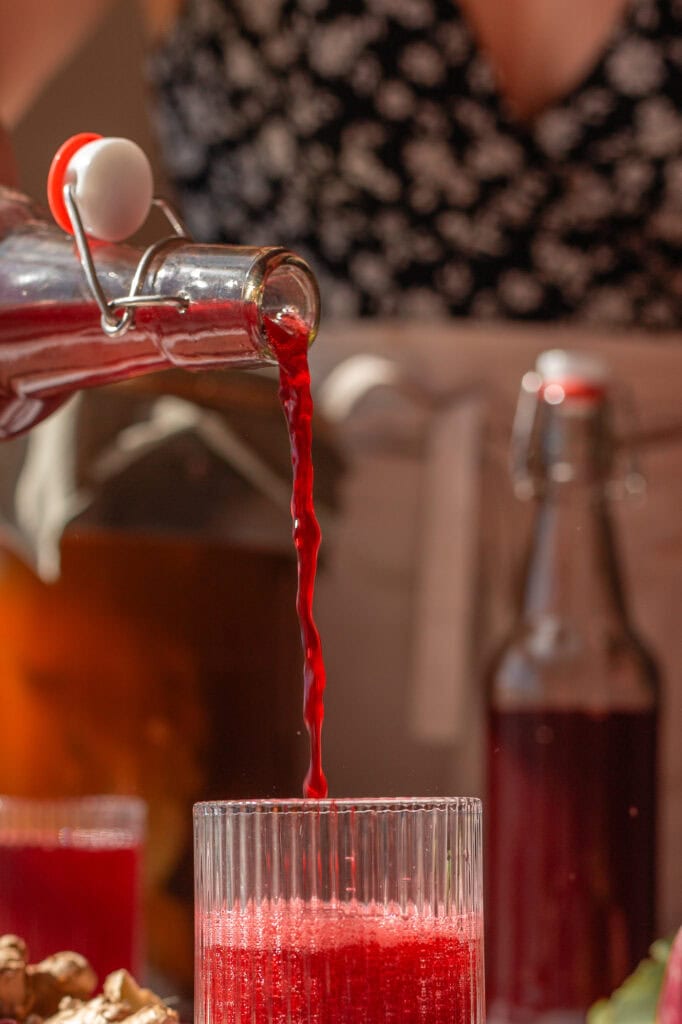
What is Kombucha Secondary Fermentation?
Secondary fermentation truly brings kombucha to life. After the initial fermentation creates the tangy base, you remove the SCOBY and transfer the fermented tea to carbonation-safe bottles. At this stage, a bit of sugar (usually from fruit or vegetable juice) is added. This sugar feeds the remaining yeast and bacteria, triggering a second fermentation that naturally produces carbonation.
The benefits of secondary fermentation extend beyond just bubbles. During this process, the kombucha absorbs the rich flavors of the added ingredients, such as the earthy sweetness of beets, the tartness of cranberries, and the spicy warmth of ginger. This fermentation time also enhances the probiotic content, making the drink even more beneficial for your gut. The result is a naturally fizzy, deeply flavorful brew that is packed with nutrients and free from added sugars or artificial carbonation.
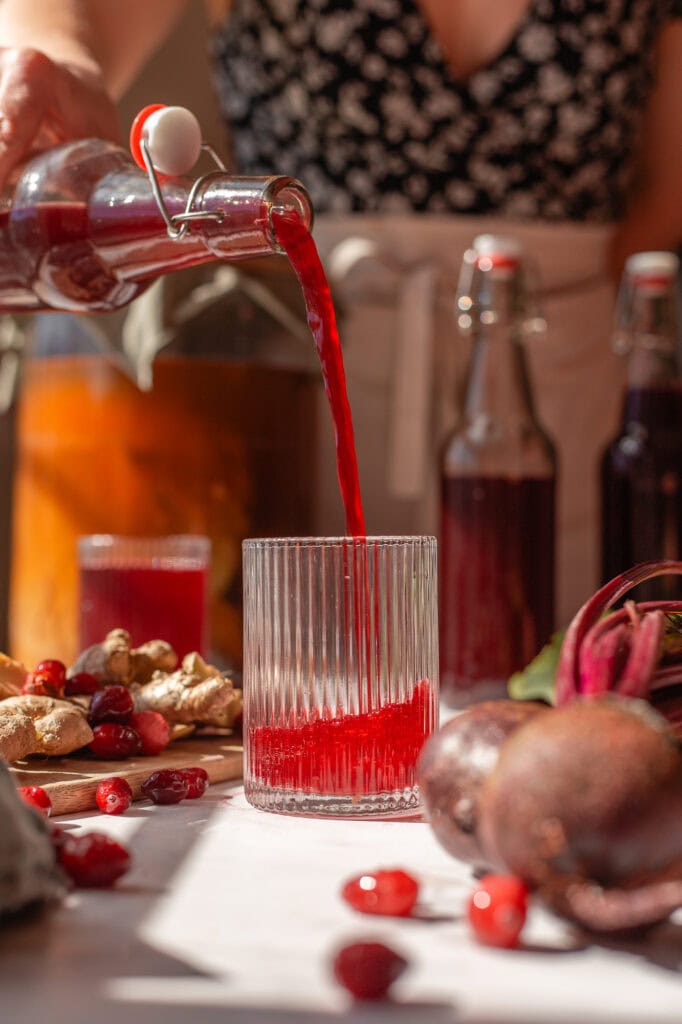
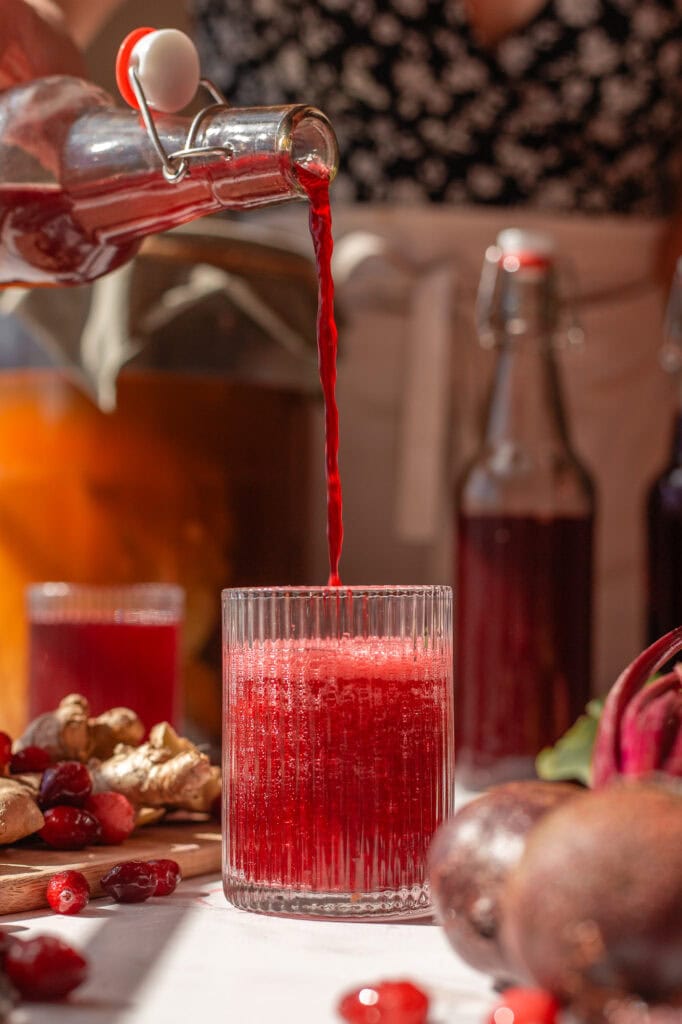
The Best Beet and Cranberry Kombucha Recipe
To make beet and cranberry kombucha, you’ll need carbonation-safe bottles for the secondary fermentation. This recipe yields about six cups, which is perfect for three 16-ounce bottles. Use fresh-pressed juices or 100% bottled juice with no additives.
Start by mixing beet juice, cranberry juice, and a small amount of grated ginger. Fill each bottle halfway with the fermented tea from the primary fermentation, then top it off with the juice mixture, leaving about an inch of headspace for carbonation. Seal the bottles and gently invert them to combine the contents.
Allow the bottles to ferment at room temperature (70-80°F) for about five days. To check for carbonation, carefully open one bottle. If it’s fizzy, transfer the bottles to the refrigerator to slow down the fermentation process. If it’s still flat, continue fermenting for a few more days, checking periodically until it reaches your desired level of fizz. Once chilled, your kombucha is ready to enjoy.
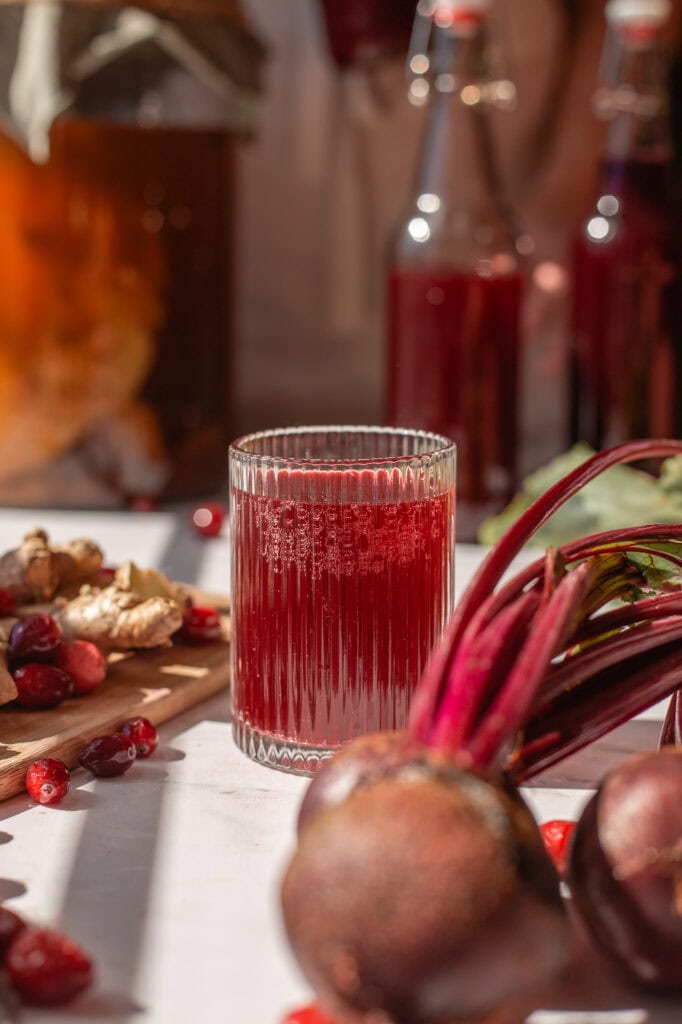
Kombucha Fermentation Supplies
To make this kombucha secondary fermentation recipe, you will need:
- Fermented tea from primary fermentation
- Beet juice
- Cranberry juice
- Fresh ginger root
- Carbonation-safe bottles
- Funnel
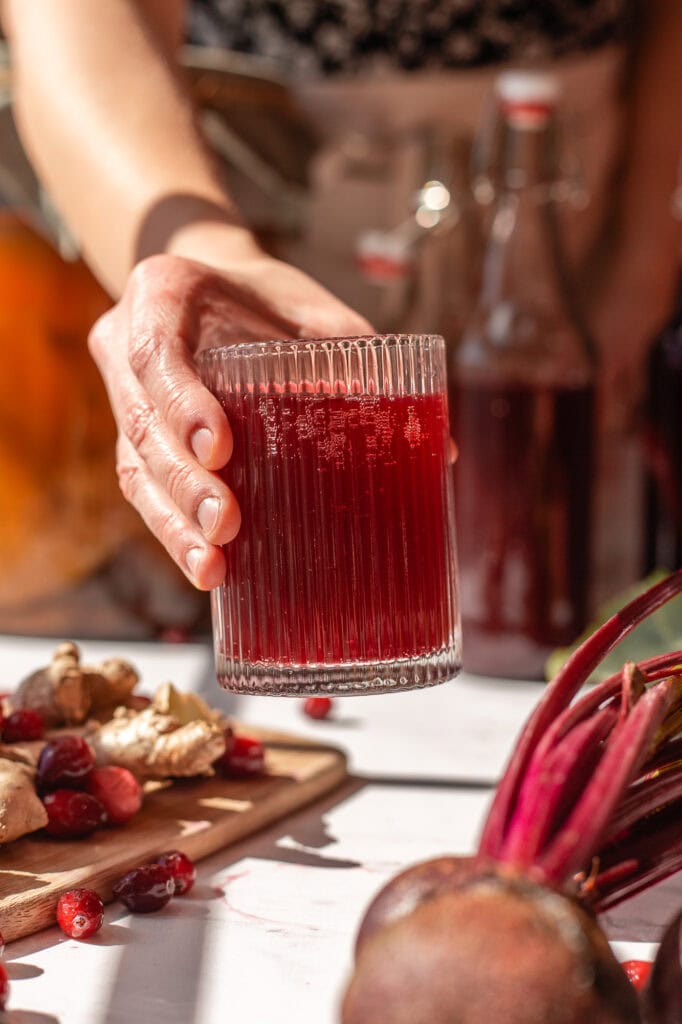
Healing Beet and Cranberry Kombucha with Ginger
Experience the revitalizing benefits of this healing beet and cranberry kombucha, infused with the warming spice of ginger. This earthy, tart, and naturally effervescent brew is rich in probiotics.
- Prep: 10 minutes
- Cook: 5 minutes
- Total Time: 120 hours 15 minutes
Ingredients
- about 3 cups fermented sweet tea from primary fermentation
- 2 cups cranberry juice
- 1 cup beet juice
- 2 tablespoons ginger root, washed and grated*
Instructions
- It is vital that you use carbonation safe bottles for secondary fermentation. This recipe makes 6 cups, so I use three 16-ounce bottles. You can use fresh pressed juice (see notes) or bottled pasteurized juice; both work great (ensure it’s 100% juice, no additives).
- Mix the beet and cranberry juice.
- Evenly divide the ginger and add some to each bottle.
- Fill a carbonation safe bottle about 1/2 full with fermented sweet tea from primary fermentation.
- Top off the bottle with the juice mixture so there is about an inch of headspace left in the bottle.
- Secure the bottle lid and gently invert it a couple times to mix.
- Allow it to ferment at room temperature (70-80 degrees F) for about 4 to 5 Days.
- Carefully open the lid to see if it is carbonated to your liking. If it is refrigerate, if not continue to ferment for a few more days, carefully checking the carbonation again.
- Keep refrigerated.
Notes
- If pressing your own juice, you can juice the ginger root with beets and cranberries. If you do not have fresh ginger root, sub with 1 teaspoon ginger powder.
- If using fresh pressed juice I suggest heating it to 145° F for a few minutes then cooling before using. This ensures no wild microbes get introduced into the kombucha.
- The juice ratio is slightly adjustable. The best ratio for lower sugar is 3 parts kombucha and 1 part juice. For slightly sweeter, as with this recipe, I do half kombucha half juice.


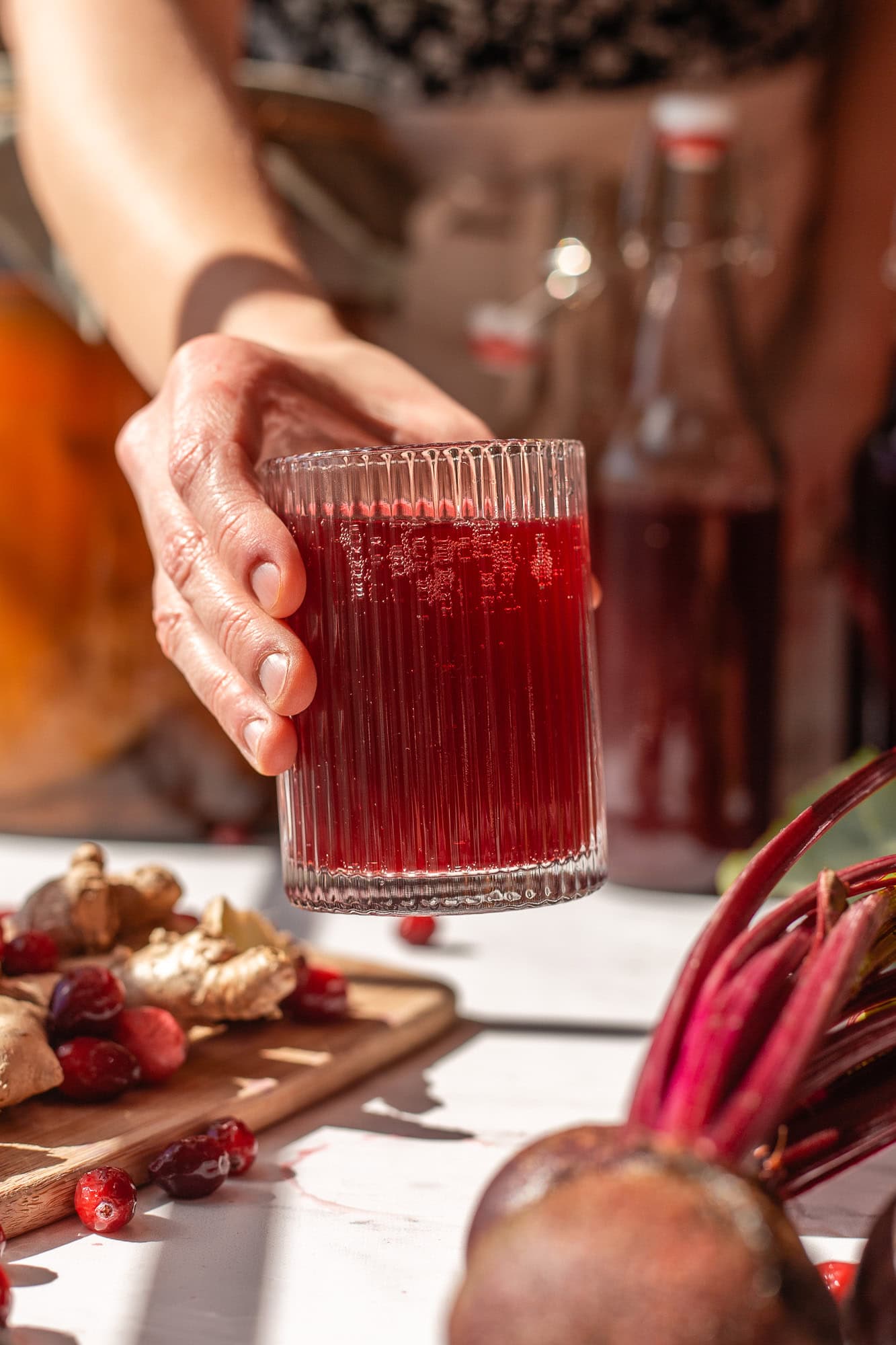
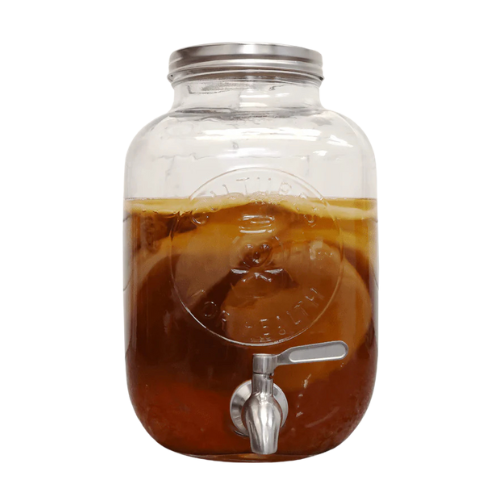
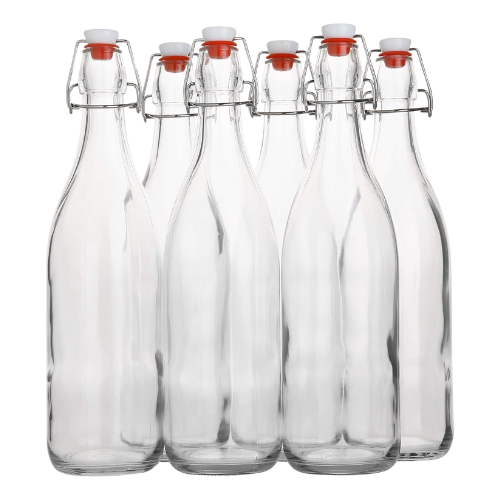
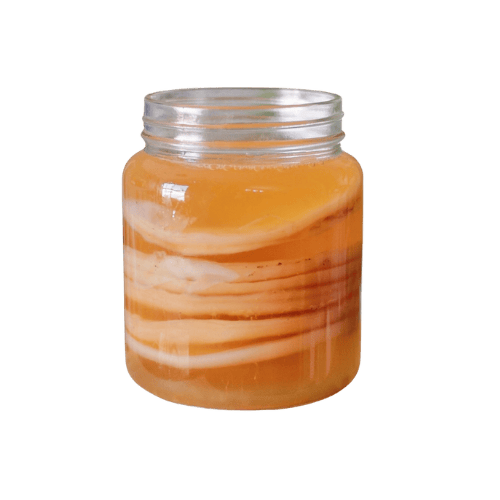
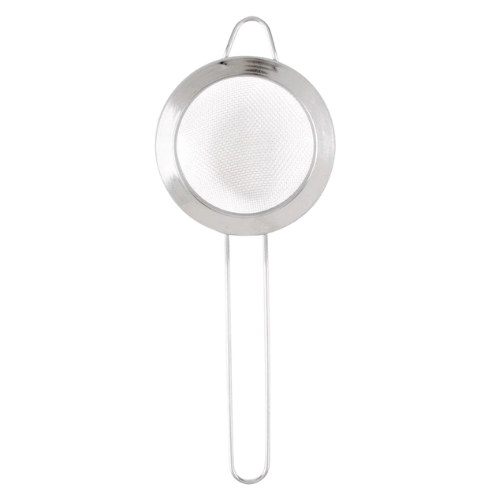
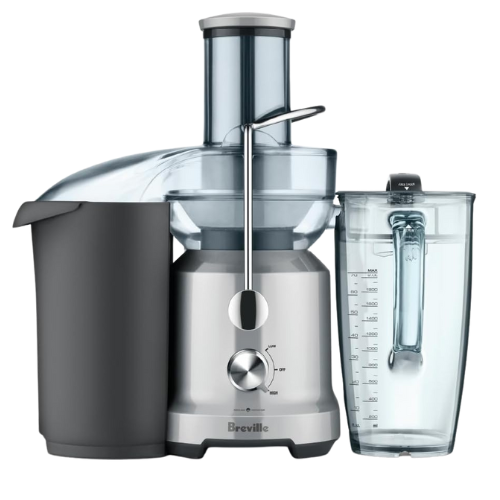


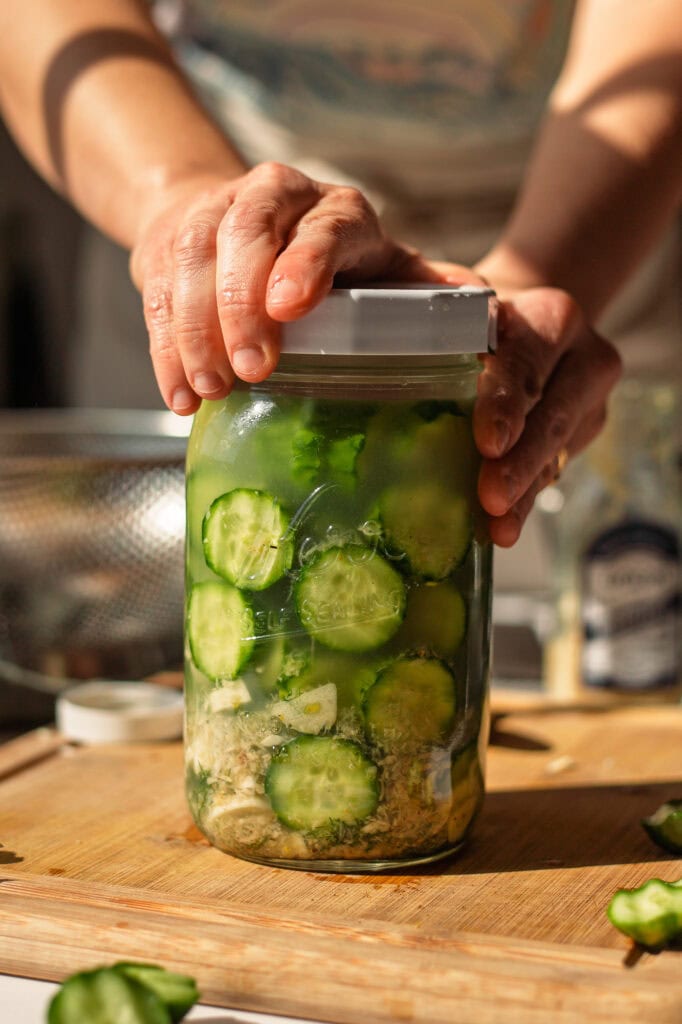


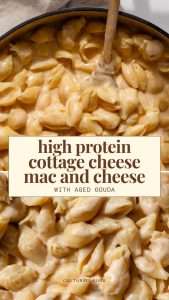


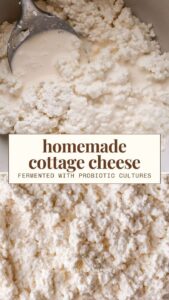
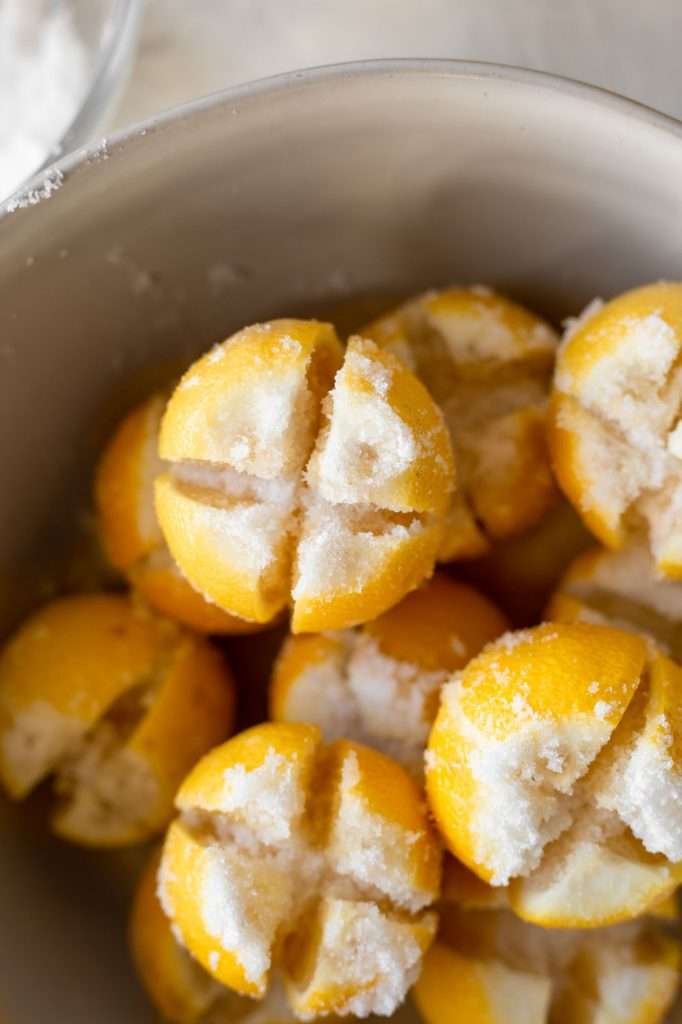
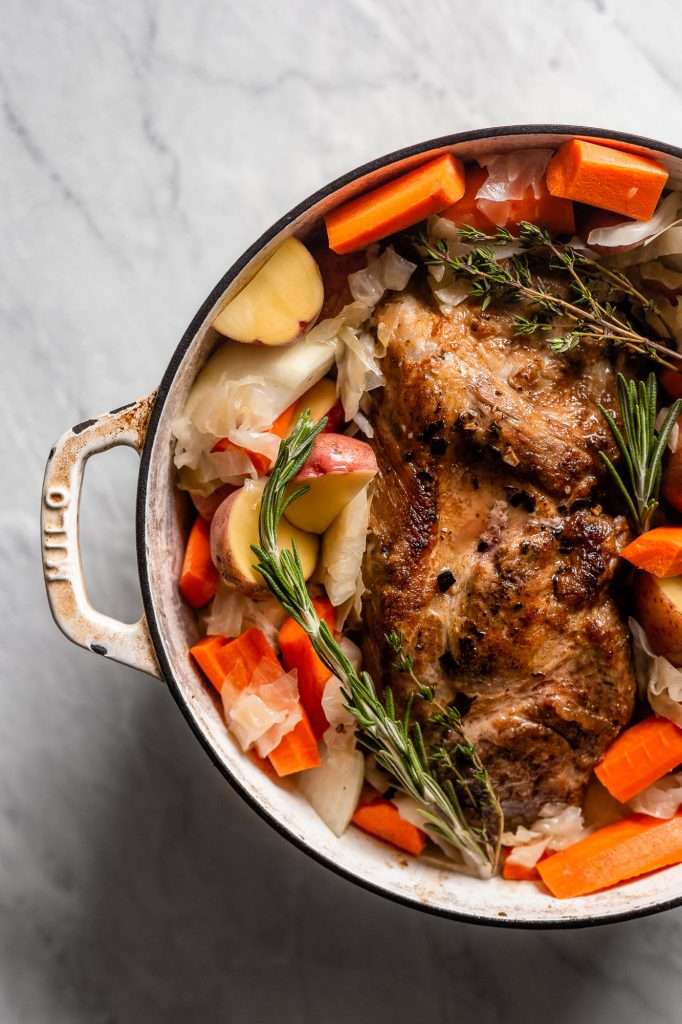
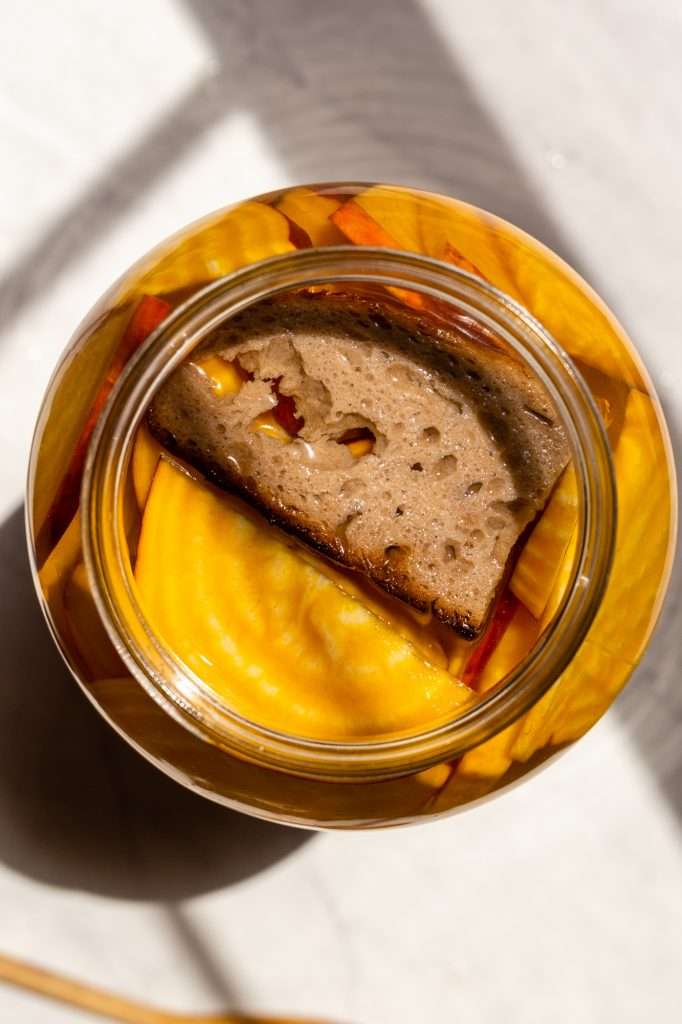
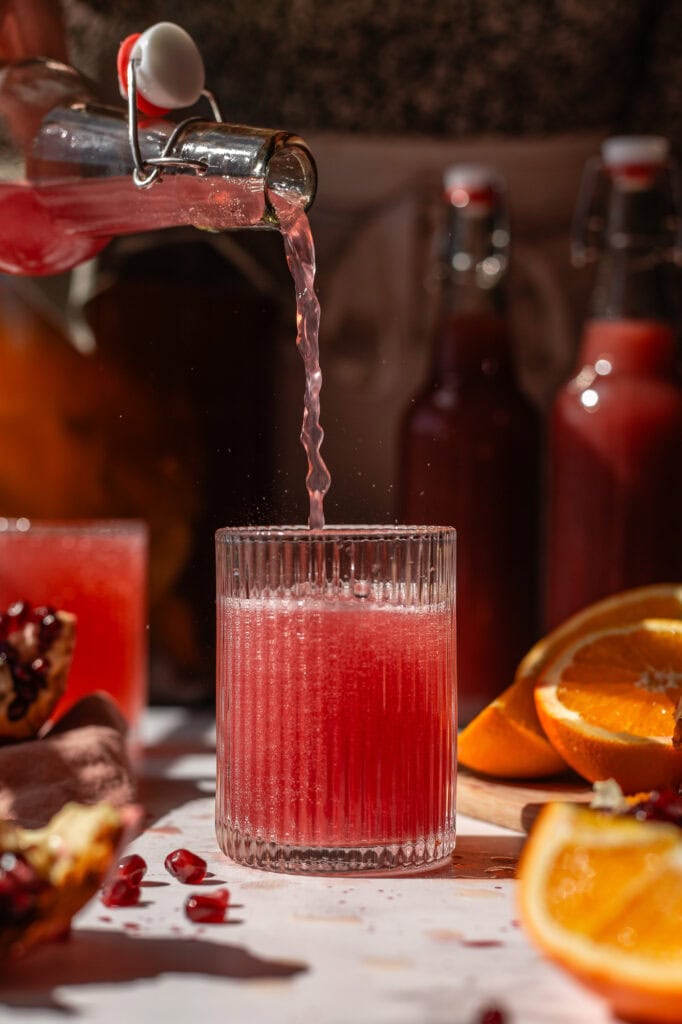
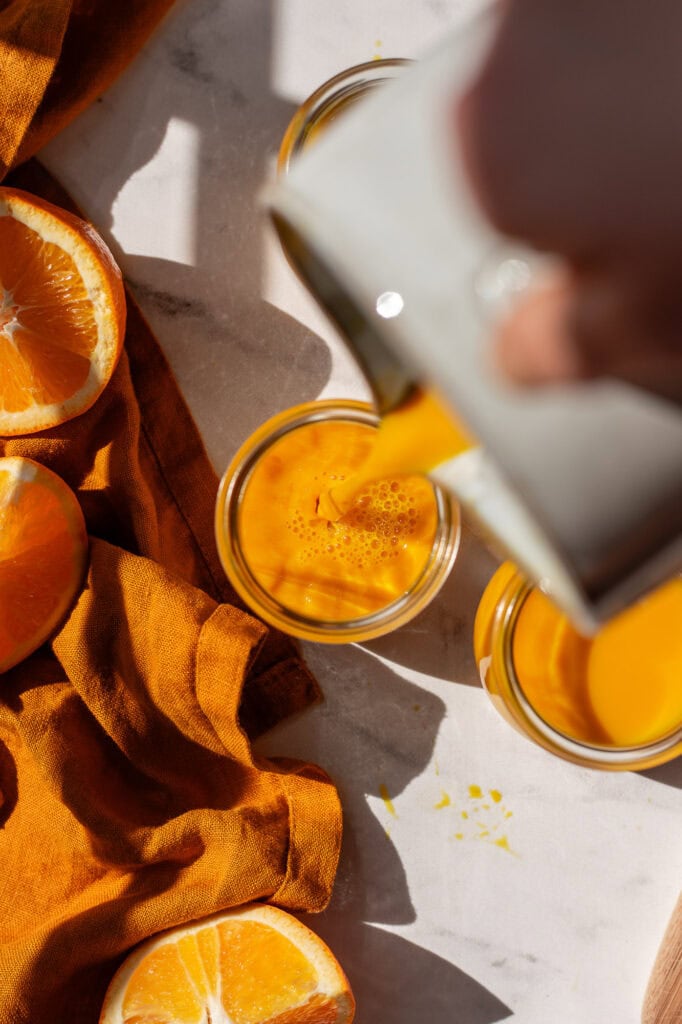
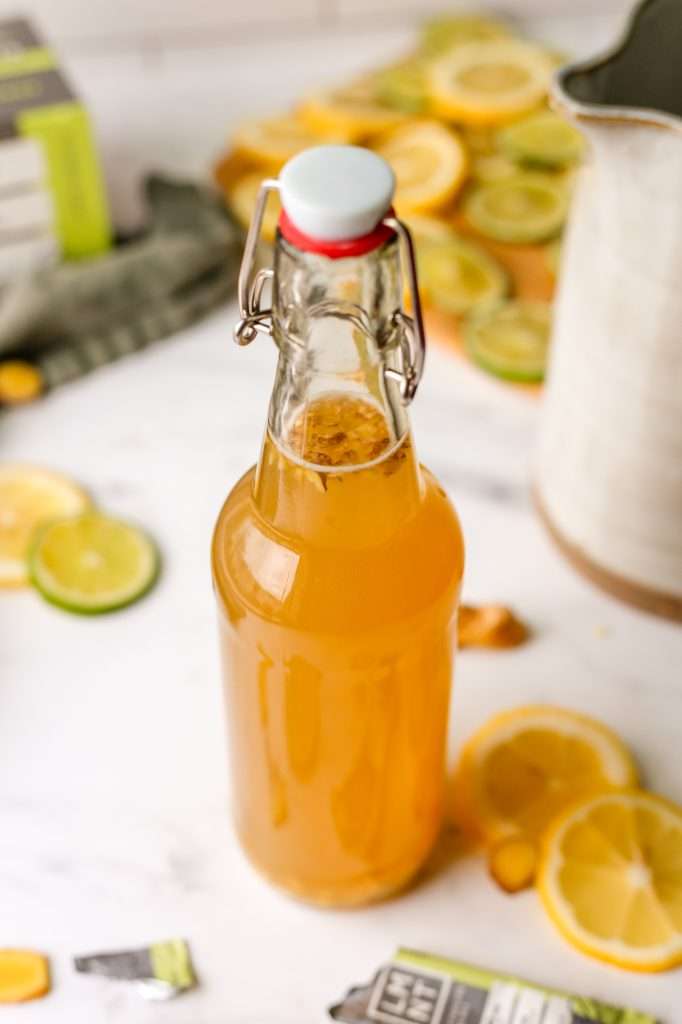

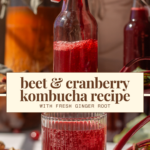
Great web site
Thank you!